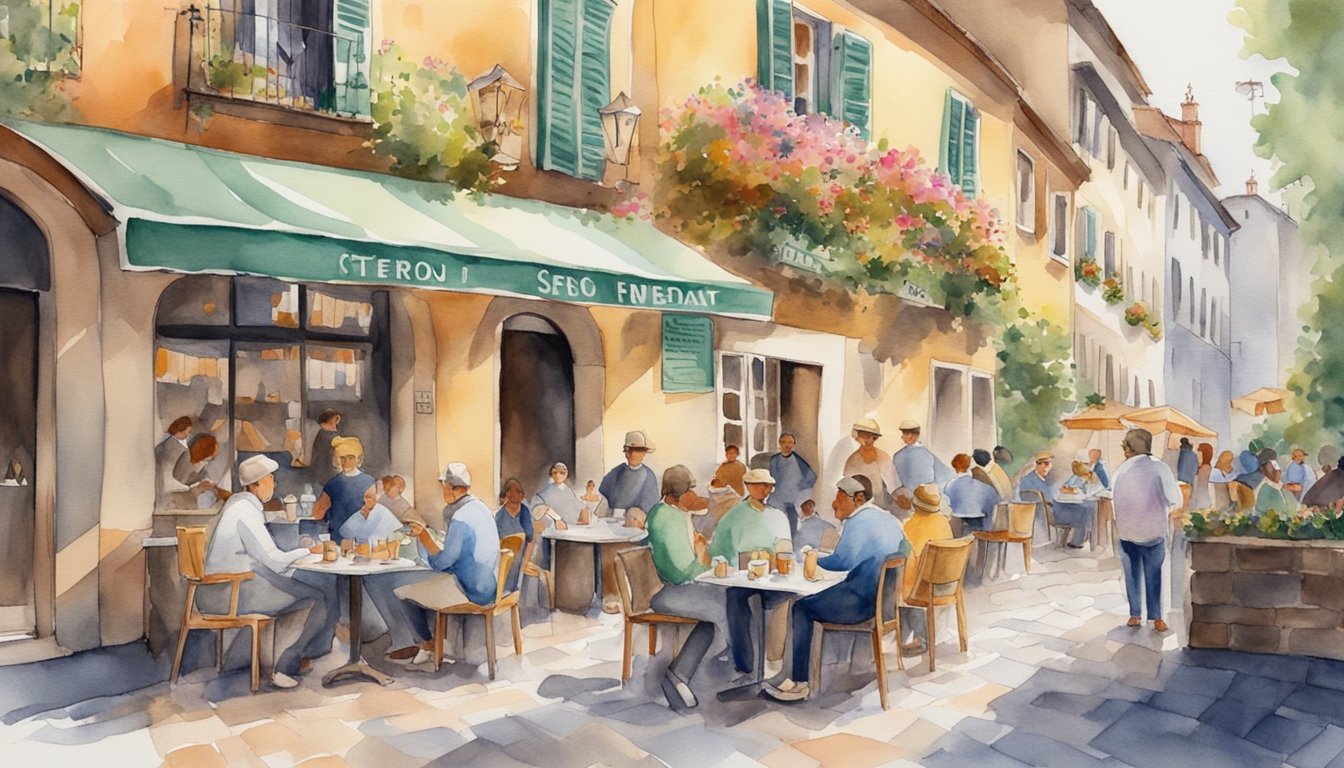Italian Cultural Heritage
Art and Architecture
Italy has a rich heritage in art and architecture, with its history tracing back to the Etruscan and Greek civilizations. The country has been at the forefront of artistic and intellectual developments, especially during the Renaissance period when artists, scholars, and architects were inspired by a reappraisal of Classical Greek and Roman art.
Some examples of Italy’s significant artistic contributions include the cities of Florence, Venice, and Rome, which are home to numerous masterpieces of painting, sculpture, and architecture. Notable Italian artists during the Renaissance include Leonardo da Vinci, Michelangelo, and Raphael. In addition to the Renaissance style, Italy also played a significant role in the development of the Baroque art movement.
Cuisine and Gastronomy
Italian cuisine is famous worldwide for its delicious dishes and the use of fresh, high-quality ingredients. The gastronomy of Italy varies from region to region, with each area having its specialties. Some popular Italian dishes include pasta, pizza, risotto, and gelato. The country is also known for its contribution to the world of wine, with famous wine-producing regions such as Tuscany and Piedmont.
Traditional Italian cuisine emphasizes the importance of using locally sourced ingredients, and many recipes have been passed down through generations. This long-standing culinary culture is a testament to Italy’s commitment to preserving its historical and cultural heritage.
Historical Influence
Italy’s historical influence can be seen in various aspects of its cultural heritage, including its art, architecture, and cuisine. The country has a strong connection to the ancient Roman Empire and has made significant contributions to the cultural development of Europe and beyond.
With 58 World Heritage Sites – the largest number of any country in the world – Italy is home to a wealth of monuments, churches, and ancient sites that offer valuable insight into the nation’s diverse history. Some examples of historically significant sites include the ancient Roman towns of Pompeii and Herculaneum, along with the ruins of Rome itself.
The influence of Italy’s history and cultural heritage continues to shape its contemporary identity, making it a fascinating place to explore, learn, and marvel at its varied and vibrant past.
Lifestyle and Traditions

Festivities and Customs
Italian culture is rich in customs and traditions, with festivities often centered around food, wine, and family gatherings. Important celebrations in Italy include Christmas, Easter, and Epiphany. On Epiphany Eve, children look forward to the arrival of La Befana, a kind-hearted witch who brings gifts and sweets to good kids. Another well-known tradition is the Carnival of Viareggio, a lively festival with parades, music, and colorful masks.
Annual harvest festivals throughout the country offer a glimpse into Italy’s agricultural heritage. It is during these events that they celebrate the abundance of their land and the importance of Italian cuisine.
Fashion and Design
Italy is globally renowned for its sense of style, fashion, and design. With cities like Milan and Naples at the forefront, Italian fashion has dominated the industry for decades. Italian craftsmanship is synonymous with quality and elegance, as seen in their automobile and luxury goods production.
Besides fashion, Italy has a vibrant and well-established arts scene, encompassing cinema, opera, and the highly prestigious Venice Biennale, a world-renowned art festival showcasing Italy’s contribution to contemporary art.
Family and Social Life
Family is a central pillar in Italian culture, with social life often revolving around familial bonds and gatherings. Italian families tend to be close-knit, with multiple generations living together or in close proximity. Meals are a significant aspect of Italian social life, bringing family and friends together to share in the joys of Italian cuisine.
Music and sports also play a crucial role in the Italian lifestyle. Italian opera has a long-standing history, while fervent sports fans can be found cheering on their favorite soccer teams or participating in physical activities like cycling or skiing.
Overall, Italian culture is a fascinating blend of ancient customs and modern sensibilities, with an unmistakable emphasis on the arts, family, and social life.

